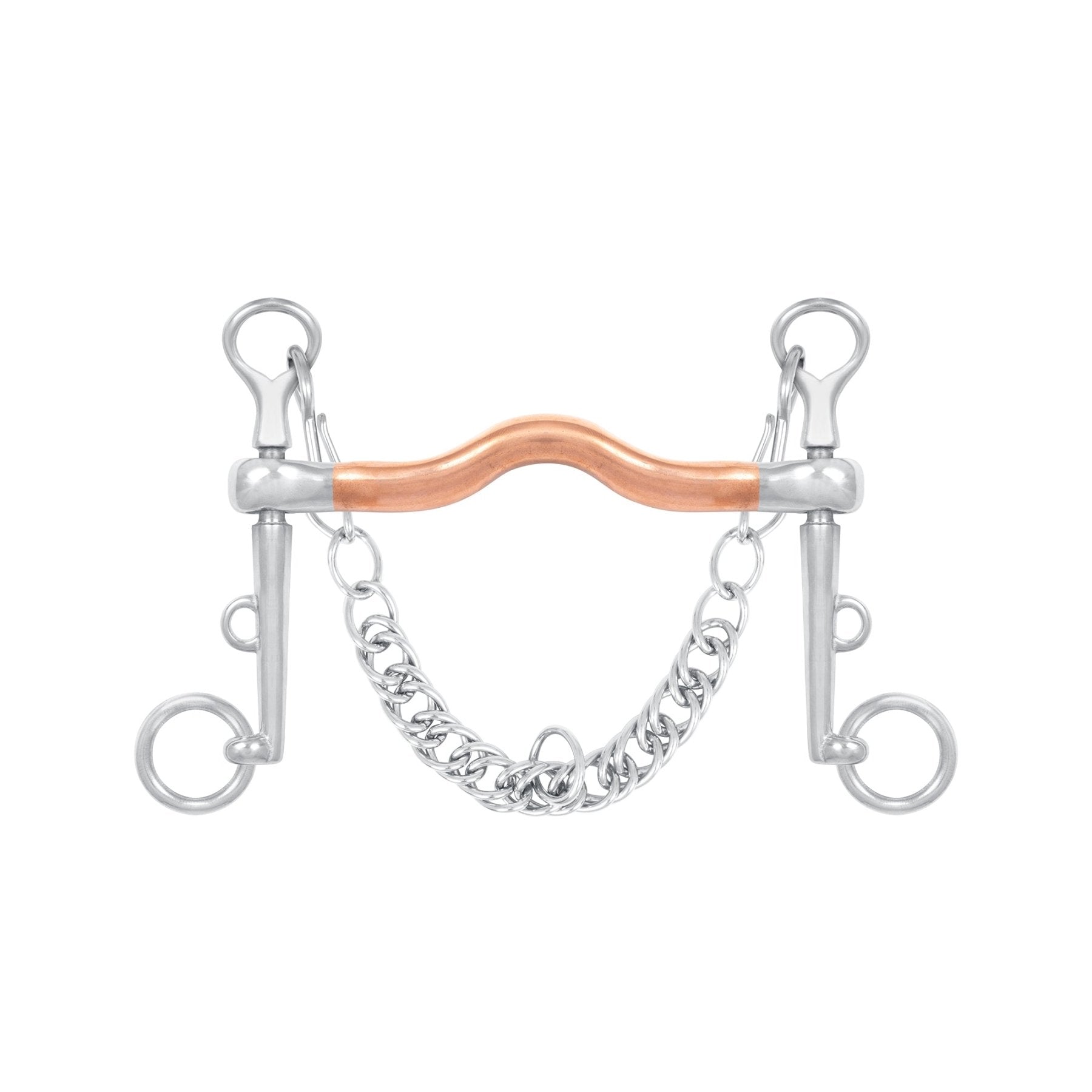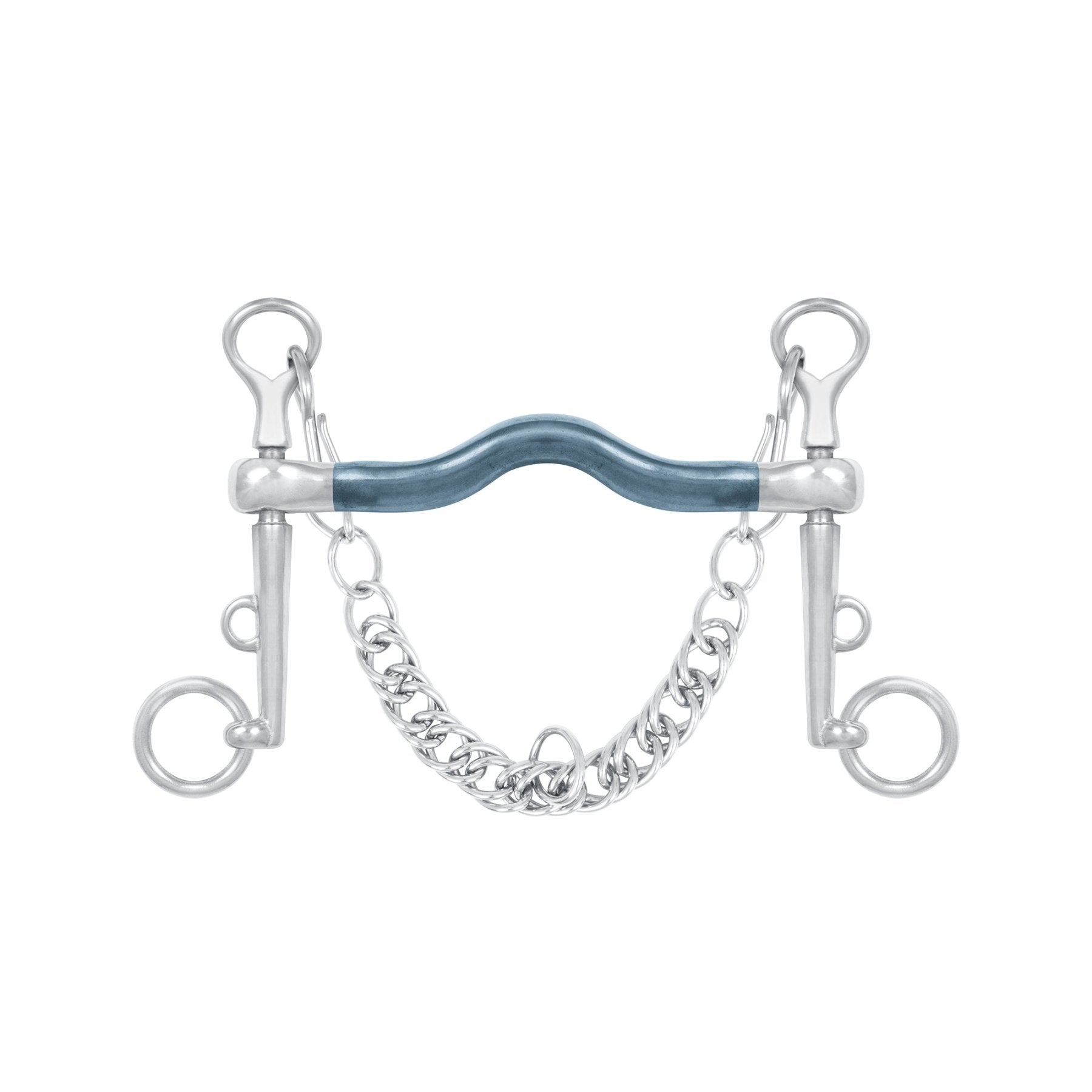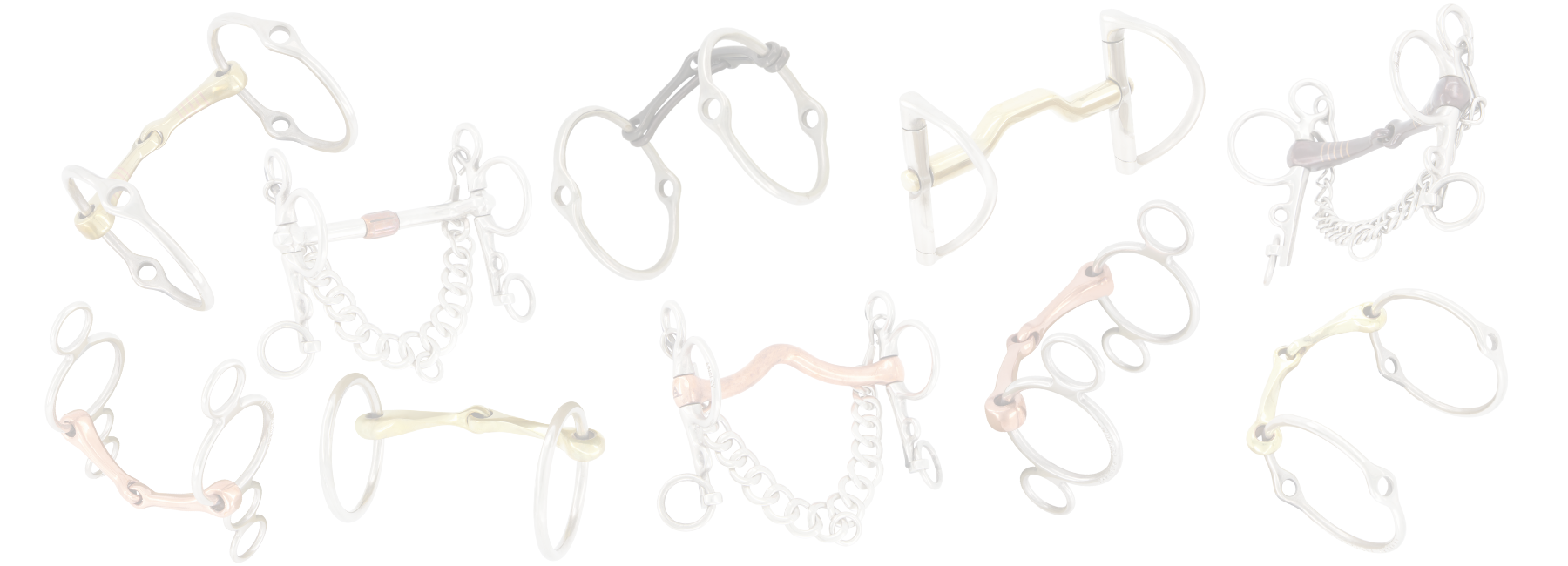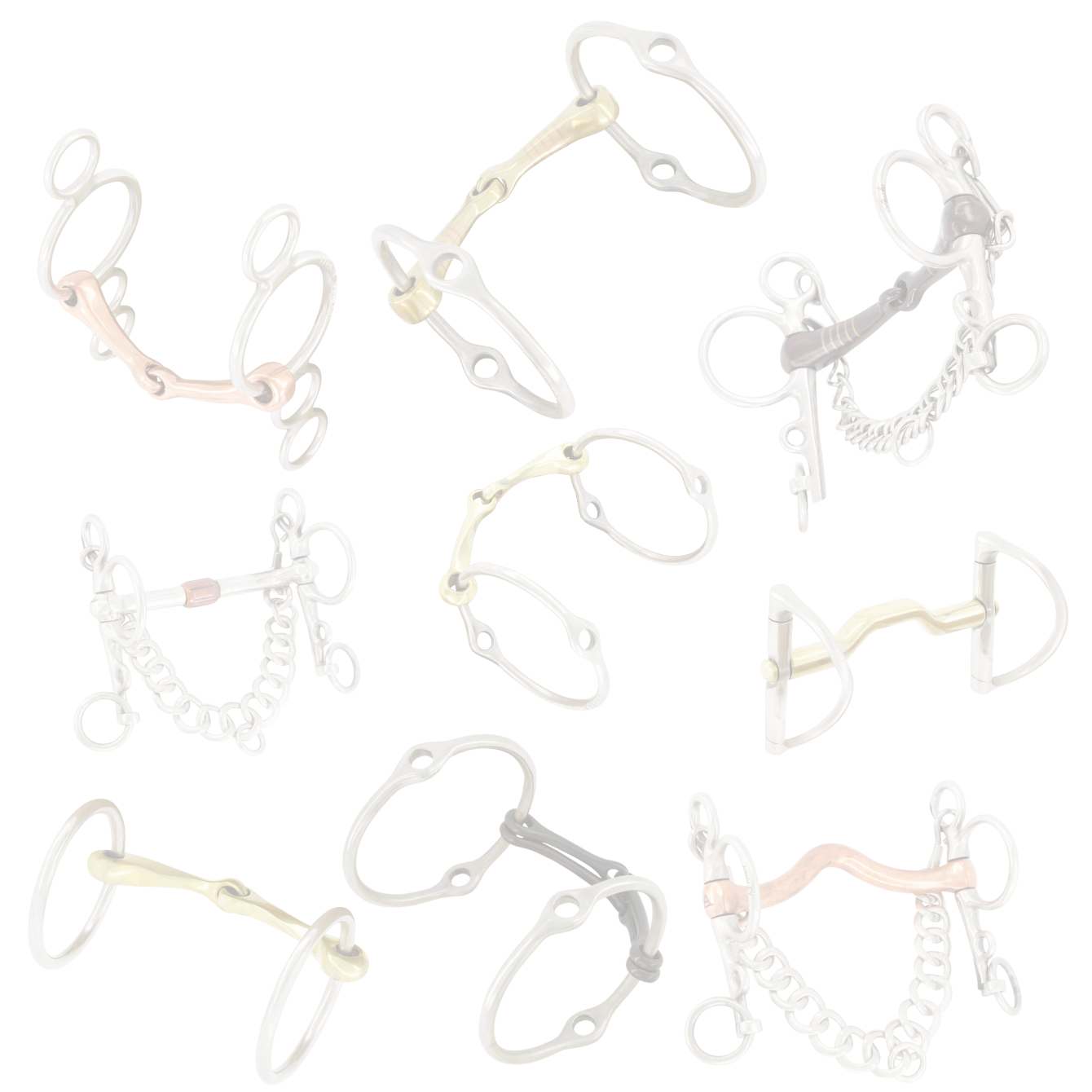

Weymouth Ported Pelham (Abbey)
A Weymouth Pelham, also referred to as a Double Bridle Pelham, is always used in conjunction with a Bradoon Snaffle, is a type of mouthpiece that is characterised by its distinctive central port design. The central port provides tongue relief by creating a raised area in the middle of the mouthpiece, reducing pressure on the tongue and redistributing it to the bars and palate evenly avoiding concentrated points of discomfort. This encourages the horse to relax and accept the bit more readily.
Used in conjunction with a Bradoon snaffle, this bit allows the action of a pelham and snaffle in combination.
Although some horses may be ridden in this all the time, it can also be used 2-3 times to help increase your horse's response before returning to a normal mouthpiece.
Product information
Different materials encourage varying levels of salivation. Salivation is important as it results in a more relaxed jaw and a softer mouth, promoting bit acceptance and the ability to respond to the rider's commands without tension. When the horse is relaxed, it is more focused on the rider's signals, facilitating better communication. Materials which promote more salivation do so by encouraging the horse to chew and grind on the bit, this engagement can lead to improved responsiveness and communication between horse and rider.
Brass
Brass is an aesthetically pleasing alloy with a slightly sweet taste which encourages light salivation. Brass has good thermal conductivity and natural antibacterial properties which help reduce the build-up of bacteria on the bit. Brass is a good balance between strength and softness, offering a gentle action on the horse’s mouth but durable enough to withstand significant forces and its hardness contributes to good resistance to wear. Brass is anti-corrosive and rust resistant, which means it requires less maintenance. It can develop an easily removed patina over time which has a neutral taste; while it doesn’t taste bad to horses, it does not have the same salivation-inducing effect that copper or sweet metal bits do.
Copper
The most notable benefit of copper bits is its ability to stimulate salivation, the natural taste encourages horses to chew and produce more saliva. Many horses prefer the taste of copper, which can make them more willing to accept the bit and respond positively to it. This can be especially beneficial for young horses or horses with sensitive mouths. Copper has excellent thermal conductivity, warming in the horse’s mouth very quickly. It also has natural antibacterial properties which help reduce the build-up of bacteria on the bit. Copper is a gentler and softer material, so with heavy use over time the horses chewing and grinding can wear down the mouthpiece faster than it would with brass or sweet metal. As part of the natural oxidisation process, copper mouthpieces develop a greenish patina, this is normal and even helps increase the bit's palatability.
Sweet Metal with Copper Inlays
Combining the benefits of both materials offers several advantages for the horse’s comfort and responsiveness. When exposed to moisture (the horse’s saliva) sweet metal develops a light non-toxic rust called iron oxide, this has a sweet taste and encourages the horse to chew on the bit and salivate. The natural taste of the copper inlays adds extra flavour and further encourages the horse to chew, softening its mouth – this can be especially beneficial for young horses or horses with sensitive mouths. Sweet metal has good thermal conductivity and the oxidisation gives the bit a more textured feel, giving the horse an increased indication of what the rider is trying to achieve when asking for certain commands. Sweet metal is strong and resistant to wear, it can better withstand chewing and grinding over time when compared to copper.
We refer to leverage often throughout our bit explanations, it is valuable for riders to understand what it means.
Leverage in horse bits refers to the mechanical advantage created by the design of certain bits; to apply pressure to certain areas of a horses mouth, head and neck.
The leverage helps magnify the riders rein aids, allowing for greater control and communication with the horse, often requiring less physical strength from the rider.
This increased pressure can be applied to the horse’s poll, chin, mouth or tongue, depending on the design and use of the bit.
We are proud to ship with DHL, the fastest & most reliable express delivery service in the world.
Shipping rates can be quickly calculated by entering your post code: simply click on your cart after adding your desired items.
If your goods are in stock and depending on your location, your order will be at your door in between 1 and 1.5 weeks time, often faster!
Items are dispatched from our fulfilment centres in the United Kingdom and New Zealand.
Returns can be accepted for store credit within 30 days of purchase. The item/s must be in brand new, resell-able condition and returned to Ainsley Saddlery at the customers expense. Conditions apply, please refer to our Returns page.
Take the guesswork out of finding the perfect bit.
Talk to an expert
Steering difficulties, discomfort, lack of responsiveness?
Behavioural and responsiveness problems can stem from multiple factors, addressing them often requires working through several possibilities, including trying a specialised bit. It's a matter of eliminating the variables until a solution is found - a specialised bit is a fantastic place to start.
Tell us about the problem you'd like solved and an Ainsley Expert will be in touch to help.







